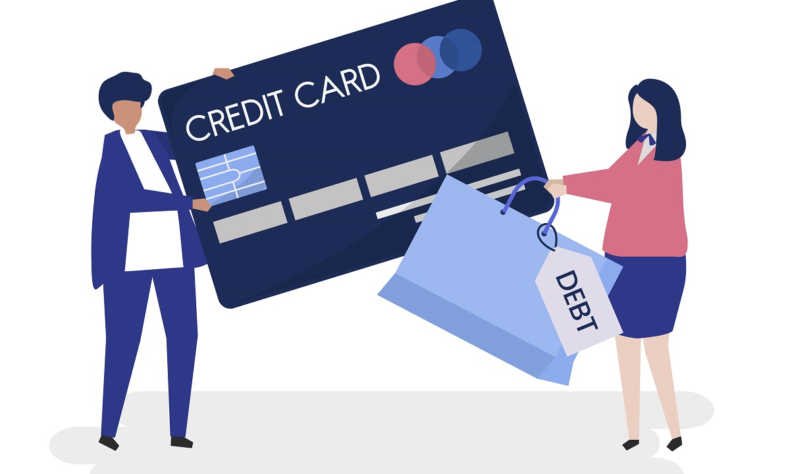
Many people dream of the romantic adventure of moving abroad, whether it’s for a new job or a fresh start in a new place. However, if you’re struggling to make your credit card payments, your debt could hinder your plans. It’s important to know that your debt doesn’t disappear when you move abroad, although debt collection becomes more challenging for issuers when you leave the country.
Due to the unique credit systems and regulations in each country, creditors may have difficulty tracking you down, but ignoring the debt will not make it go away. Your pandora credit card issuer, debt buyer, or debt collection agency will continue to make efforts to collect the debt as usual, and failing to address the issue could have severe long-term consequences.
Will Your Credit Card Issuer Reclaim Your Credit Card Debts?
When a credit card debt goes into default, credit issuers usually begin collection activities such as making calls and sending letters requesting payment. These activities may continue for 30 to 90 days before the defaulted debt is sent to a debt collection agency.
Debt collection agencies are well-versed in debt collection laws in different countries. Hence, your credit card issuer may engage a debt collector partnered with an agency in your new country of residence to counter any limitations or legal hurdles to chasing you for your debt.
The debt collection agency is hired under a contract for a specified period to send demand letters and make calls to collect the debt. If unsuccessful, your credit card issuer may assign your debt to another collection agency, and the cycle continues, with multiple agencies potentially contacting you regarding your debt.
Even years later, your credit card issuer may sell your defaulted debt to a debt buyer who could employ various tactics to collect the debt. Debt buyers purchase many defaulted accounts at discounted prices and may offer favorable or unfavorable settlements. However, accounts sold or transferred can become challenging to manage, so it is advisable to prevent it from happening.
You Will Have To Pay Taxes on Your Debt
At a certain point, creditors may stop pursuing you for payment of your credit card debt. This is because, after a period of time, the credit card issuer may write off your debt. Nevertheless, the IRS considers the written-off debt as income that you need to report and pay taxes on. For example, if you owe $20,000 to your credit card issuer and fail to pay, the IRS will treat this $20,000 as taxable income.
Failing to pay your taxes could result in the State Department revoking your passport, denying you a new one, or issuing you a limited passport. Since unpaid taxes can lead to the suspension of your driver’s license and passport, it’s crucial to determine the type of debt you owe before attempting to evade it.
Paying off your credit card debt is the most effective way to avoid relentless collection tactics from creditors and other parties involved. Although you may be tempted to flee the country to escape your debt, this could lead to financial difficulties that will eventually catch up with you.
Credit card debt can be a significant burden, but evading it is not the best approach. Leaving the country does not nullify the contract between you and your credit card issuer, and you remain responsible for clearing your debts. However, if you move abroad for legitimate reasons and communicate with your credit card issuers, they are less likely to pursue aggressive debt collection tactics.
How To Manage Your Credit Card Debt Before Moving Abroad
If you have a good payment record, credit card issuers may be open to negotiating payment terms or offering a hardship program. Contacting your creditor to explain your situation and establish a repayment schedule can provide relief during tough times and potentially lead to more affordable interest rates or waived fees.
Debt consolidation is another option to consider. This involves merging multiple debts into a single account, which can help lower interest rates and speed up debt repayment. There are two ways to consolidate credit card debt:
Personal Loans: You can obtain a fixed-rate debt consolidation loan to pay off your debts. Personal loans typically have lower interest rates than credit cards, which can save you money.
Credit Cards with Introductory APR: Applying for a credit card with an introductory APR period can also be beneficial for debt consolidation. These cards usually offer a 0% introductory period of around 12-18 months, sometimes even longer. This can be crucial in paying down outstanding debt since it allows you to focus on the debt itself without worrying about accruing interest.
To tackle credit card debts effectively, implementing payment strategies can be helpful. By doing so, you can stay on track and resolve your debts quickly. For instance, you can choose to pay more than the recommended 2% to 3% of the minimum monthly payment suggested by credit card issuers. Alternatively, setting up automated monthly payments can ensure that your debts are paid on time.
Since banks generate revenue from interest rates charged for each pay period, it is financially beneficial to make payments more quickly. By doing this, you can save more money in the long run.
Conclusion
Leaving the country does not nullify your credit card debts, so it is crucial to settle your debts before departing or communicate transparently with your credit card issuers about your relocation and payment plans.
This approach will not only help you maintain a favorable credit score but also safeguard your local assets.





